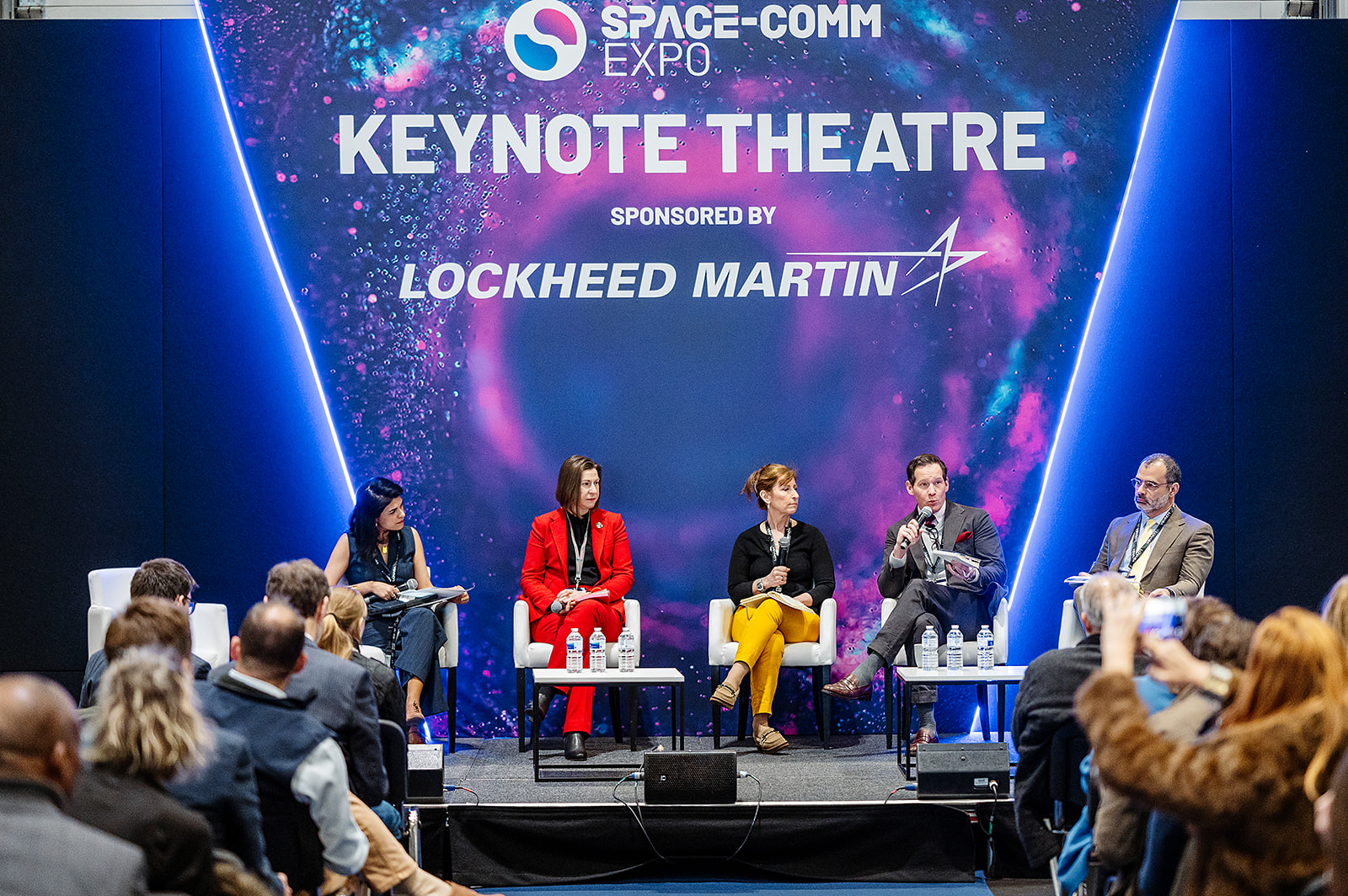Airbus selected by ESA to collect Martian samples

Above:
Artistic impression of the Earth Return Orbiter (ERO) Mars Sample Return (MSR) which will reach Mars orbit, capture orbiting samples launched from the Red Planet and bring them back to Earth. Mars Sample Return (MSR) is a joint ESA-NASA campaign and the next step in the exploration of Mars. ERO and the Sample Fetch Rover (SFR) are the two main European elements of MSR, both are set to be designed and built by Airbus. A manipulating arm, referred to as the Sample Transfer Arm (STA), that will transfer the samples from the SFR to the Mars Ascent Vehicle (MAV), is the third European contribution to the MSR programme.
Copyright Airbus
Mars Sample Return (MSR) is a joint ESA-NASA campaign and the next step in the exploration of Mars. ERO and the Sample Fetch Rover (SFR) are the two main European elements of MSR, both are set to be designed and built by Airbus. A manipulating arm, referred to as the Sample Transfer Arm (STA), that will transfer the samples from the SFR to the Mars Ascent Vehicle (MAV), is the third European contribution to the MSR program. The value of the ERO contract is € 491 million.
The five year mission will see the spacecraft head to Mars, act as a communication relay with the surface missions, perform a rendezvous with the orbiting samples and bring them safely back to Earth. Prior to launch from the Mars surface onboard the MAV, the Martian samples will be stored in sample tubes and collected by the SFR, for which Airbus has already commenced the study phase.
For ERO, Airbus will use its autonomous rendezvous and docking expertise built up over decades of experience in optical navigation, using technologies from the successful ATV (Automated Transfer Vehicle) and recent developments from JUICE, Europe’s first mission to Jupiter.
“We’re bringing the full force of our experience gained on Rosetta, Mars Express, Venus Express, Gaia, ATV, BepiColombo, and JUICE to ensure this mission succeeds. Bringing samples back to Earth from Mars will be an extraordinary feat, taking interplanetary science to a new level and Airbus is excited to take on this challenge as part of this joint international mission. ” said Jean-Marc Nasr, Head of Airbus Space Systems.
To be launched on an Ariane 6 in 2026, the 6 ton, 6 m high spacecraft, equipped with 144m² solar arrays with a span of over 40 m – some of the biggest ever built – will take about a year to reach Mars. It will use a mass-efficient hybrid propulsion system combining electric propulsion for the cruise and spiral down phases and chemical propulsion for Mars orbit insertion. Upon arrival, it will provide communications coverage for the NASA Perseverance Rover and Sample Retrieval Lander (SRL) missions, two essential parts of the MSR Campaign.
For the second part of its mission, ERO will have to detect, rendezvous with, and capture a basketball-size object called the Orbiting Sample (OS), which houses the sample tubes collected by SFR; all this over 50 million km away from ground control. Once captured, the OS will be bio-sealed in a secondary containment system and placed inside the Earth Entry Vehicle (EEV), effectively a third containment system, to ensure that the precious samples reach the Earth’s surface intact for maximum scientific return. It will then take another year for ERO to make its way back to Earth, where it will send the EEV on a precision trajectory towards a pre-defined landing site, before itself entering into a stable orbit around the Sun.
After landing, the samples will be transferred to a specialised handling facility where they will be quarantined. Once the sample tubes are opened, initial measurements will be taken to generate a detailed catalogue, enabling specific parts of the samples to then be targeted for specialist science investigations.
Airbus will have overall responsibility for the ERO mission, developing the spacecraft in Toulouse and conducting mission analysis in Stevenage.
Thales Alenia Space Turin will also have an important role, assembling the spacecraft, developing the communication system and providing the Orbit Insertion Module. The mission enabling RIT-2X ion engines will be provided by ArianeGroup.














